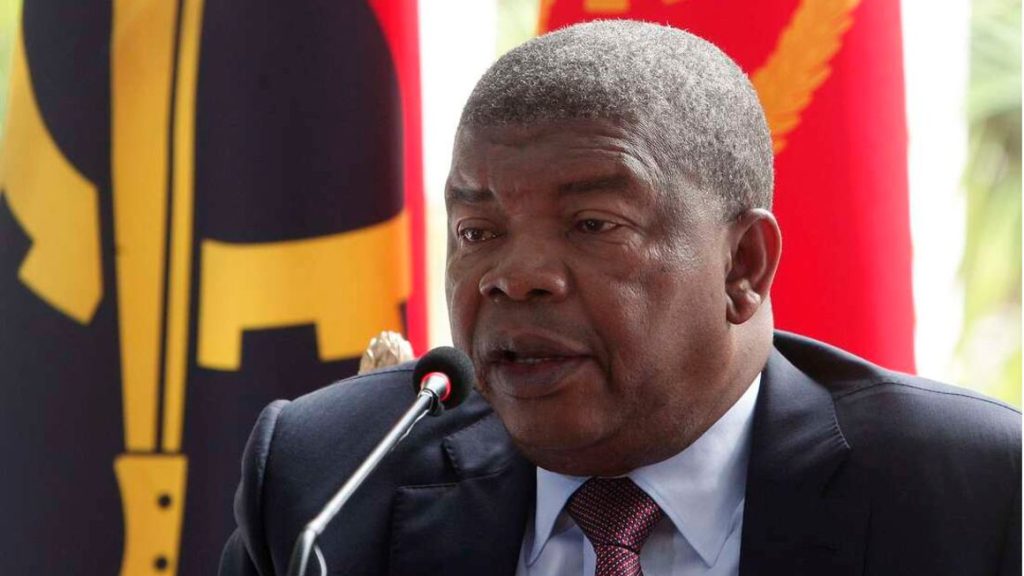Angolan President J. Lourenço was sworn in for his second term on Thursday, promising to continue with economic reforms and praising the “tolerance” of voters after a closely contested election.
In a ceremony held at the historic Praça da República square in Luanda, Lourenço, under tight security, committed to being “a president for all Angolans.” He congratulated the nation for their “patriotism” and the high level of “civility” shown during what he called the most competitive election in Angola’s democratic history.
“Angolans have shown the world that in critical moments, they make the best decisions for the future of their country with great responsibility,” Lourenço said. He emphasized that by re-electing him and his party, the Popular Movement for the Liberation of Angola (MPLA), voters had chosen “continuity” and ensured “stability.” He pledged to continue liberalizing the economy, encourage private business growth, and tackle youth unemployment.
Focus on Reforms Lourenço promised to push forward with policies aimed at boosting the private sector, increasing the availability of goods and services, and raising wages, including for the military, which drew cheers from the crowd. “Our path is clear: democracy and a market economy,” he stated.
Tight Security Security was heightened around the event, which opposition party UNITA criticized as an attempt to suppress dissent. Lourenço won the August 24 election with 51.17% of the vote, giving the MPLA its slimmest margin of victory since Angola gained independence from Portugal in 1975.
Although Lourenço’s MPLA has dominated Angolan politics for decades, this election saw a significant drop in support, reflecting widespread discontent in the country. Despite his victory, many Angolans feel that life has not improved under MPLA rule.
Opposition Challenges UNITA, led by Adalberto Costa Júnior, secured 43.95% of the vote, a major increase from 2017. The party performed particularly well in urban areas, especially in the capital, Luanda, where it won a majority for the first time. Costa Júnior did not attend the inauguration and has called for protests, arguing that the election was flawed. Although a legal challenge by UNITA was dismissed, the opposition and some civil society groups have raised concerns about the fairness of the process.
While international observers from other African nations praised the peaceful nature of the election, they also pointed to issues with press freedom and the accuracy of the voter rolls.
A New Vice President Lourenço’s second term will also feature Angola’s first female vice president, Esperança Maria da Costa, a 61-year-old biologist and university professor. She was sworn in alongside Lourenço during the ceremony, which was attended by around 15,000 invited guests, including 50 foreign leaders or their representatives.
Challenges Ahead Lourenço came to power in 2017, succeeding long-time ruler José Eduardo dos Santos. He inherited a country grappling with deep economic problems, including a recession, and widespread corruption. While Lourenço launched an anti-corruption campaign that targeted dos Santos’s family and allies, critics claim it was politically motivated.
Despite efforts to attract foreign investment and diversify the economy, many Angolans continue to live in poverty, with high unemployment and limited access to basic services. “The president always makes big promises, but we just want our lives to get better,” said Luiza Basic, a teacher in Luanda. “We need better wages, food on the table, and access to schools and hospitals.”
The shadow of dos Santos, who died in July, still looms large over the country. His state funeral was held in the same square where Lourenço’s inauguration took place, but analysts argue that little has changed in terms of governance between the two leaders.
“There isn’t much difference between Lourenço and his predecessor when it comes to human rights and basic freedoms,” said Borges Nhamirre, a researcher at the Institute for Security Studies in Pretoria.



















